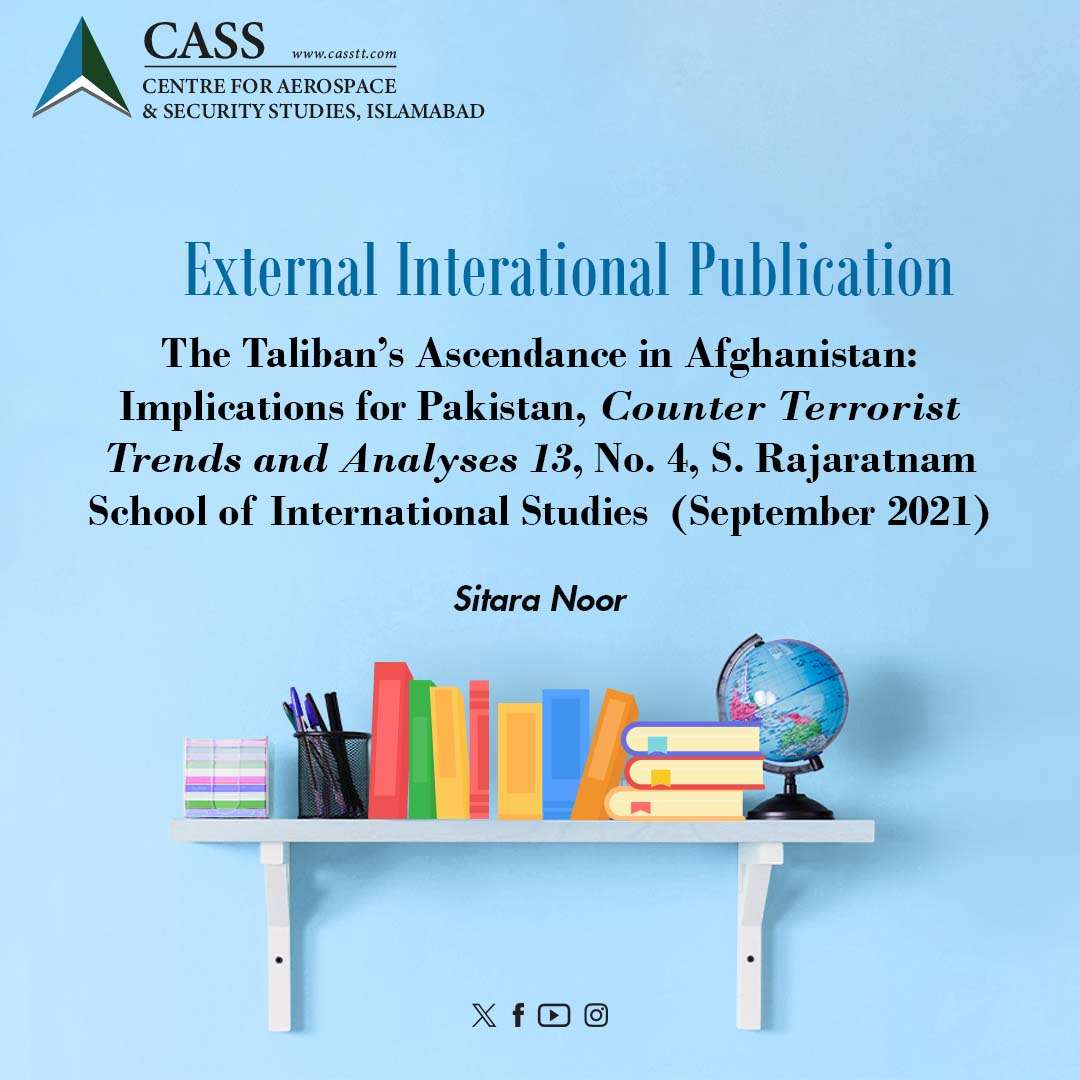The Taliban’s Ascendance in Afghanistan: Implications for Pakistan, Counter Terrorist Trends and Analyses 13, No. 4, S. Rajaratnam School of International Studies (September 2021)
Sitara Noor
Afghanistan’s rapidly evolving situation leaves Pakistan in a precarious situation, which fears an uptick of militant violence if the Taliban fail to form a stable and inclusive government by incorporating other Afghan ethnic and political factions. Pakistan expects the Taliban to fulfil their obligations concerning the rights of women and minorities as well as addressing the international community’s concerns regarding transnational terrorism. Chaos in Afghanistan will result in an uptick of terrorism in Pakistan, massive influx of refugees, intensified regional proxy wars and a downturn in the US-Pakistan relations. A stable Afghanistan is key to regional peace and stability in South Asia.





